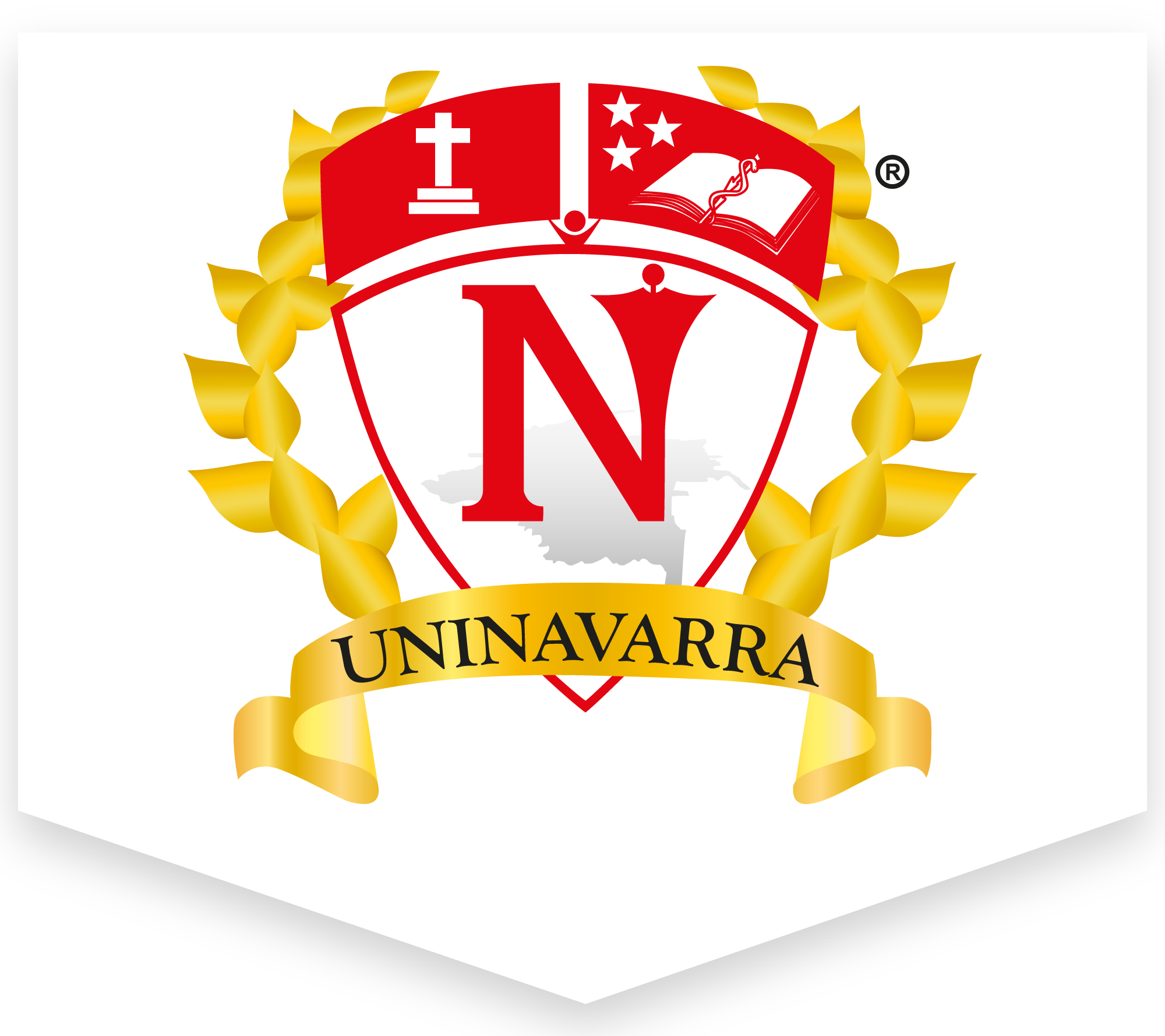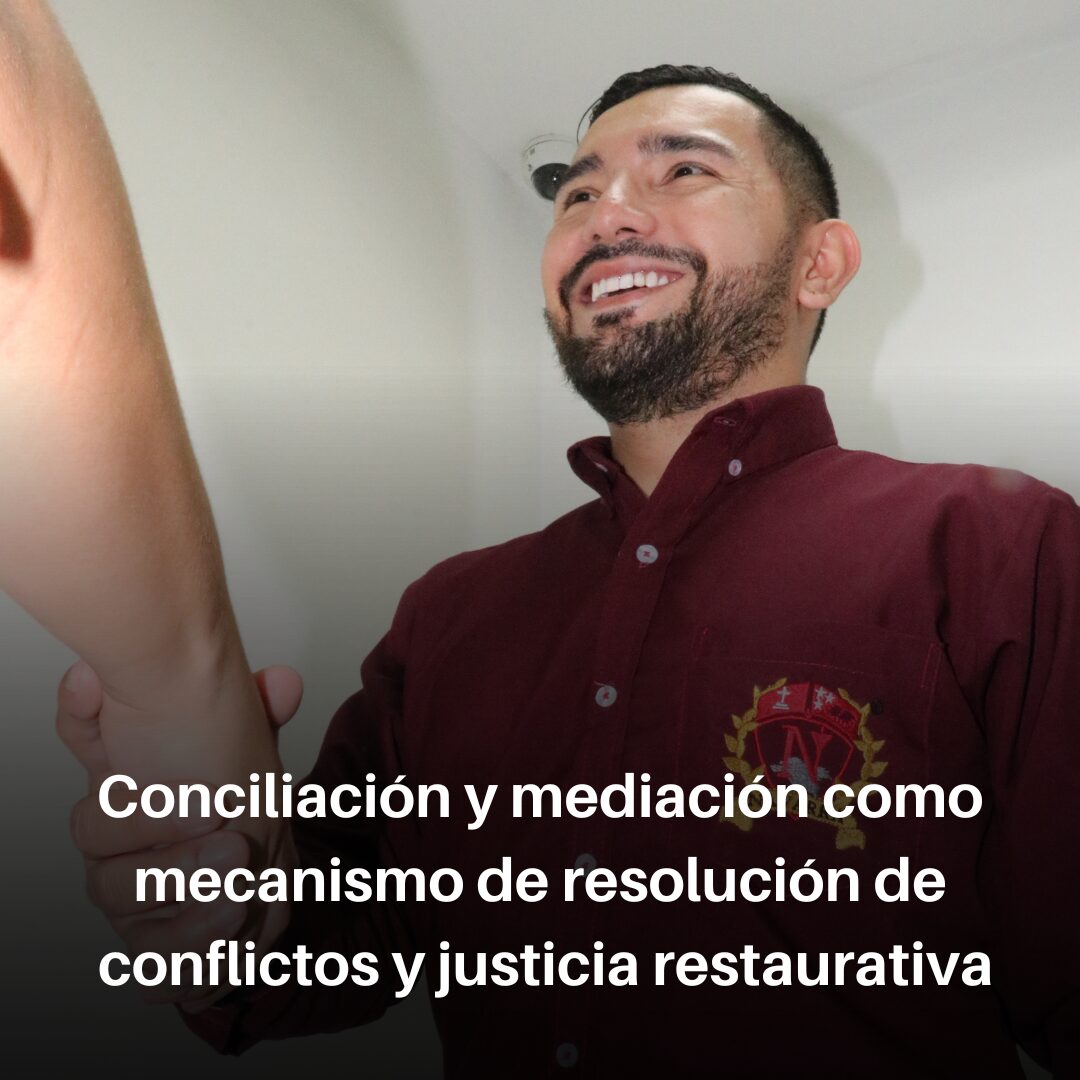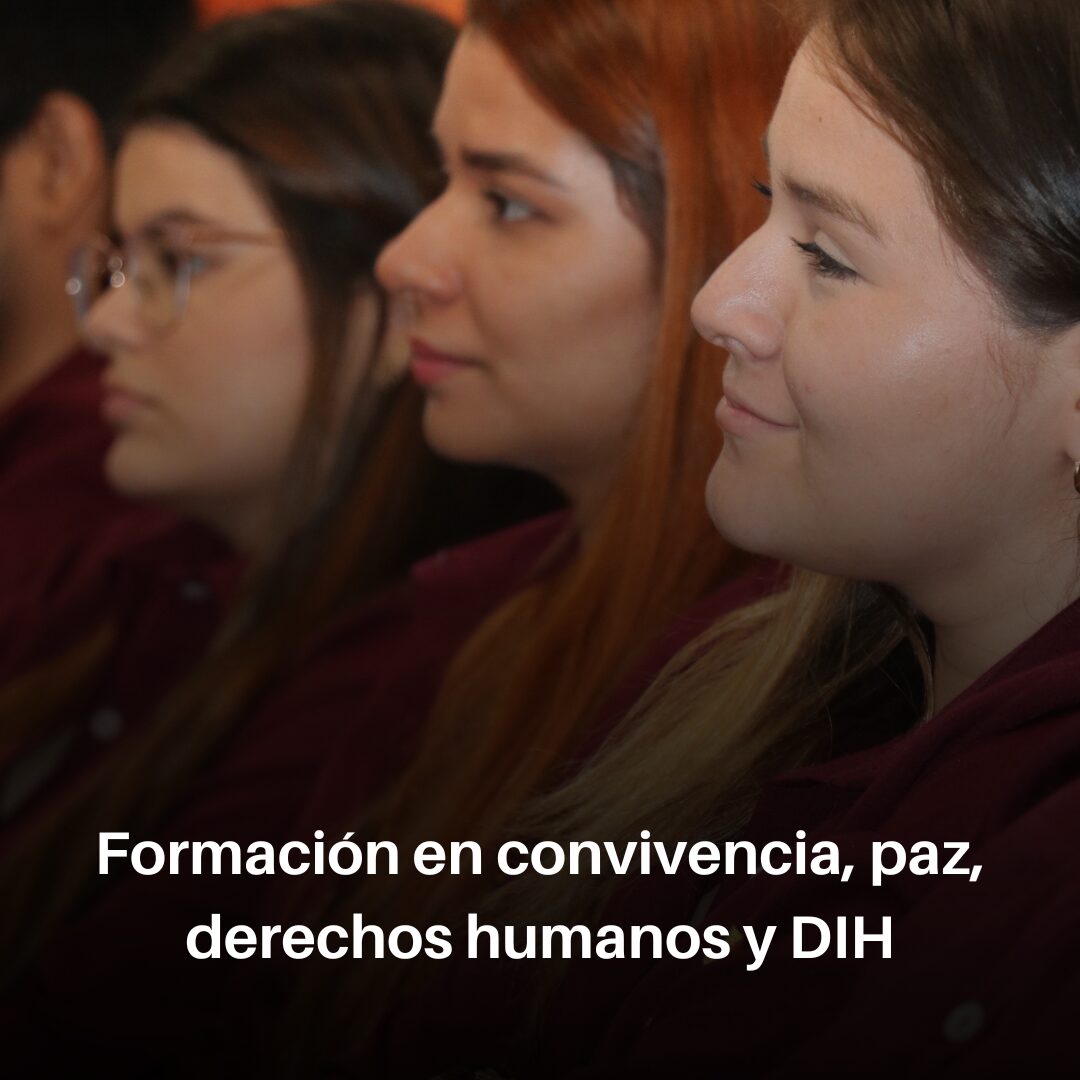Who we are
The Legal Clinic and the Martin Luther King Conciliation Center are practical learning scenarios of the Law Program where students acquire knowledge, develop competencies and learning outcomes, reinforce their disciplinary skills, principles and ethical values for the practice of law.
Articulate the teaching of law with the legal needs and difficulties of the community in order to define legal strategies for intervention and peaceful solution of the same.
Its legal assistance and dispute resolution services are free of charge and socially responsible.
VISION: The "Martin Luther King" Legal Clinic and Conciliation Center aims to achieve regional and national recognition for its social commitment in legal advice and services provided to the community based on excellence, ethics and social responsibility.
MISSION: The Legal Clinic and Conciliation Center "Martin Luther King", seeks the integral formation of enterprising students aware of the reality of the country and the South Colombian region with the capacity to contribute to society their knowledge, with ethics and social responsibility, towards the practice of legal and peaceful solutions to conflicts.
Principles
FREE:The legal practice that the enrolled student performs at the Legal Clinic will be free of charge, and no economic remuneration may be demanded from the users for any reason whatsoever. No gifts will be received for the services provided by the Legal Clinic. .
EQUALITY: All students, teachers and users of the Legal Clinic shall have equal treatment, opportunities, rights, duties, obligations and none shall be subject to discrimination or treatment contrary to human dignity.
PROFESSIONAL ETHICS: The service of legal counsel shall be rendered in the defense of justice, preserving the professional decorum of the lawyer and collaborating with a correct and compliant administration of justice with honesty, loyalty, diligence and responsibility in all assigned matters.
SOLIDARITY: Legal services shall be provided at the legal clinic to vulnerable populations whose condition prevents them from accessing the professional services of a lawyer and shall be provided in accordance with the law and these regulations.
INFORMATION AND COMMUNICATION TECHNOLOGIES: In accordance with the national government guidelines set forth in the General Code of Procedure, the Legal Clinic will implement information and communication technologies to contribute to the environment, to administrative and budgetary economy, to streamline processes and to apply the principles of administrative and academic efficiency and effectiveness.
CONFIDENTIALITY: Due to the nature of the Legal Clinic's activities, confidentiality is a guarantee requirement for teachers, students and directors with respect to the information obtained from its users.
SOCIAL PROJECTION: The Legal Clinic as a laboratory of academic practices of the Institution, in coordination with the Faculty of Humanities and Social Sciences, the Law Program and the Direction of Extension and Social Projection, will make available its human, physical and technical resources at the service of communities and vulnerable populations, with the objective of offering them judicial and extrajudicial solutions to their legal conflicts, aiming to improve the quality of life in the Surcolombian Region.
RESEARCH: Knowledge is assumed as a permanent and transforming process where human beings generate new knowledge. In this way, the Legal Clinic articulates its social projection work with research through Research-Action strategies defined in the Legal Clinic of the Law Program.
INCLUSION: It implies that the Office should generate the recognition of diversity, according to the individual differences and needs of social, economic, political, cultural, linguistic, physical and geographical order beyond "welfare, compensatory and focused" approaches, generating spaces and conditions of accessibility to all people, regardless of their abilities, their dimensions, their gender, their age or their culture. (The Ministry of National Education in its document INCLUSIVE HIGHER EDUCATION POLICY GUIDELINES (2013)).
Who we are
The Legal Clinic and the Martin Luther King Conciliation Center are practical learning scenarios of the Law Program where students acquire knowledge, develop competencies and learning outcomes, reinforce their disciplinary skills, principles and ethical values for the practice of law.
Articulate the teaching of law with the legal needs and difficulties of the community in order to define legal strategies for intervention and peaceful solution of the same.
Its legal assistance and dispute resolution services are free of charge and socially responsible.
VISION: The Conciliation Center of the Legal Clinic of the Navarra University Foundation UNINAVARRA aims to achieve regional and national recognition for its leadership in providing conciliation services to the community with the appropriate infrastructure, resources and personnel based on ethics and social responsibility.
MISSION: In accordance with the Mission of the Navarra University Foundation - UNINAVARRA - the Conciliation Center of the Legal Clinic of UNINAVARRA has the purpose of strengthening the integral formation of the students of the Law Program as enterprising persons, with social and ethical responsibility, capable of offering society their legal services in conciliation towards the practice of legal and peaceful solutions to conflicts.
Principles
AUTONOMY OF THE WILL OF THE PARTIES: All agreements reached in the extrajudicial conciliation process depend directly on the parties involved in the conflict. The interested parties have the power to define the Conciliation Center where the conciliation will take place, to choose the conciliator, and to accept or not the settlement proposals in the conciliation.
INFORMALITY: The proceedings of the conciliators of the Conciliation Centers shall be characterized by the minimum formality.
CELERITY: The Center's care protocols must guarantee that the actions are carried out without delay.
IDENTITY: Conciliators must be trained in Alternative Dispute Resolution Mechanisms under the terms established by law. The Conciliation Center must guarantee that its directors and teacher conciliators-counselors who are registered on its lists are certified in conciliation and are constantly updated.
PARTICIPATION The Center generates spaces for community intervention focused on enthroning in the community the culture of alternative methods of conflict resolution, with the purpose of changing the antagonistic conceptions of the judicial debate and avoiding the escalation of conflicts in society.
SOCIAL RESPONSIBILITY: The Center must guarantee that its services are offered free of charge or under preferential conditions of access to persons of the strata defined in the Law.
FREE: Proceedings before the Conciliation Center of the law office are free of charge.
CONFIDENTIALITY: Due confidentiality of the information shall be maintained as a guarantee for the users of the Center.
IMPARTIALITY AND NEUTRALITY: The conciliation shall be carried out objectively and by a third party unrelated to both the summoner and the summoned party.
PROBITABILITY: Righteousness, Honesty and Integrity in the actions of the conciliators and persons linked to the Center.
Teamwork
The Legal Clinic and Conciliation Center "Martin Luther King" has a team of professors who are area coordinators and professors specialized in:
- Civil Law
- Family, Child and Adolescent Law
- Commercial and Corporate Law
- Labor and Social Security Law
- Criminal Law
- Public Law
Customer Service
Headquarters: Legal Clinic and Conciliation Center
Schedule: 8:00 a.m. to 12:00 noon and 2:00 to 6:00 p.m.
Address: 11 Street #6-32 Downtown Neighborhood
Office: consultoriojuridico@uninavarra.edu.co
Conciliation center: centrodeconciliacion@uninavarra.edu.co
Answers to frequently asked questions
Point of attention: Calle 11 #6-32 Barrio Centro
- In criminal matters in proceedings under the jurisdiction of municipal or promiscuous municipal criminal judges:
- a.) As representatives of the civil party in proceedings governed by Law 600 of 2000, or representatives of victims in proceedings under Law 906 of 2004; or the rule that takes its place, as the case may be.
- b.) As defense counsel or spokespersons in proceedings governed by Law 600 of 2000 or as defense counsel in proceedings under Law 906 of 2004, or the regulation that replaces it, as the case may be.
- c.) In matters subject to criminal complaints, as well as in criminal proceedings heard by municipal courts when they act as judges of knowledge or as supervisory judges, even if they are promiscuous courts, without prejudice to the provisions of Law 941 of 2005;
- d.) As representatives of the private prosecutor under the terms of Law 1826 of 2017.
- In criminal matters as attorneys-in-fact for victims in proceedings under the jurisdiction of the circuit criminal judges under Law 906 of 2004, or the rule that takes its place, as the case may be.
- In labor proceedings, as long as the amount does not exceed 20 smlmv.
- In civil proceedings heard by municipal judges in sole instance.
- In voluntary jurisdiction proceedings. In any case, for matters related to emancipation and adoption, the student must have a special accompaniment by the teaching staff, which will also be in charge of the judicial representation in this type of cases.
- In proceedings under the jurisdiction of family judges in sole instance, and in administrative procedures carried out by the Family Commissariats, Family Ombudsmen and police inspections, except in matters concerning measures to restore the rights of children and adolescents, and adoption processes. If the matter deals with parental authority, the student must have special support from the teaching staff, which will also be in charge of legal representation in this type of cases.
- In constitutional tutela, compliance and popular actions.
- In social arbitrations, in accordance with the provisions of Article 117 of Law 1563 of 2012 or the rule that replaces it.
- In the following jurisdictional matters, advanced before administrative authorities, as long as they can be carried out in the area of influence determined by the respective Law Program:
- Before the Superintendence of Industry and Commerce: Consumer protection actions;
- Before the Superintendence of Finance: The Financial Consumer Protection Action;
- Before the Superintendence of Health: Actions regarding denial of coverage, economic reimbursement of medical expenses, and recognition and payment of disability and leaves of absence.
- In disciplinary proceedings under the jurisdiction of the municipal offices and the Office of the Attorney General of the Nation, when notification is impossible. Exceptions to the above are proceedings against popularly elected, management, trust and management officials.
- For the exercise of the representation of third parties determined as persons benefiting from the service under the terms of this law, students, under the supervision, guidance and control of the Legal Clinic, may act in the cases established in this article, provided that the amount does not exceed 50 legal monthly minimum wages in force (SMLMV), except for the competence established herein in criminal, labor and traffic matters.
- Ex officio, in fiscal responsibility proceedings under the jurisdiction of the Municipal, District, Departmental and General Comptroller's Offices of the Republic, when notification is impossible, regardless of the amount established in this article.
- In administrative proceedings of a sanctioning nature carried out by the Superintendencies, administrative authorities, control agencies and autonomous constitutional entities.
- In police matters brought under the abbreviated verbal procedure before the police inspectors, as well as in processes related to the control and recovery of public space brought before the territorial entities.
- In the elaboration of rights of petition, complaints and claims, as well as in the advancement of administrative actions and the filing of appeals in administrative proceedings, both in public and private entities.
- In proceedings for administrative benefits, criminal subrogation and alternatives to imprisonment and requests for release, under the terms of Law 1760 of 2015 or the one that replaces it.
- In traffic contravention proceedings, for matters whose sanction does not exceed a fine of twenty (20) legal minimum daily wages in force.







